How Botswana Guarantees Free Education for All Children
For decades, the natural diamond industry has helped to make free education available to the children of Botswana.
Photography by Molly SJ Lowe
|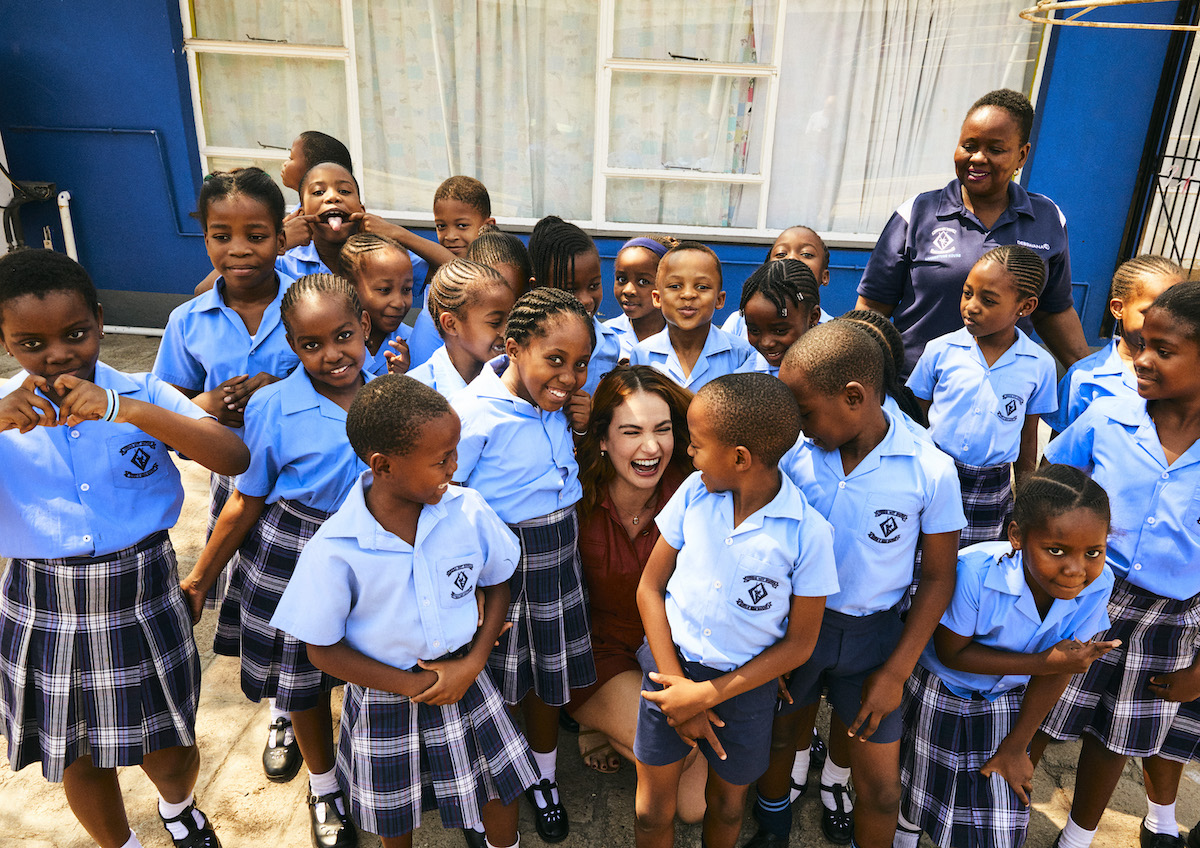
When Botswana gained its independence from Britain in 1966, it was the third poorest country in the world. It had minimal infrastructure, very few paved roads and almost a complete void of formal education. At the time, Botswana had only 22 university graduates and 100 secondary school graduates. The country’s founding president, Sir Seretse Khama made it his mission to build a government with strict anti-corruption practices and an ambitious economic development program centered around the country’s resources of beef, copper and diamonds.
Under Khama’s leadership, Botswana had the fastest growing economy in the world from 1960 to 1980, primarily driven by mining. He made sure the revenues were reinvested into Botswana’s economy, expanding infrastructure, healthcare and education. Botswana now has the highest GDP per capita in all of continental Africa. The diamond industry accounts for 40 percent of the country’s GDP and 90 percent of its exports. Every child in Botswana is guaranteed a free primary and secondary school education subsidized by the government.
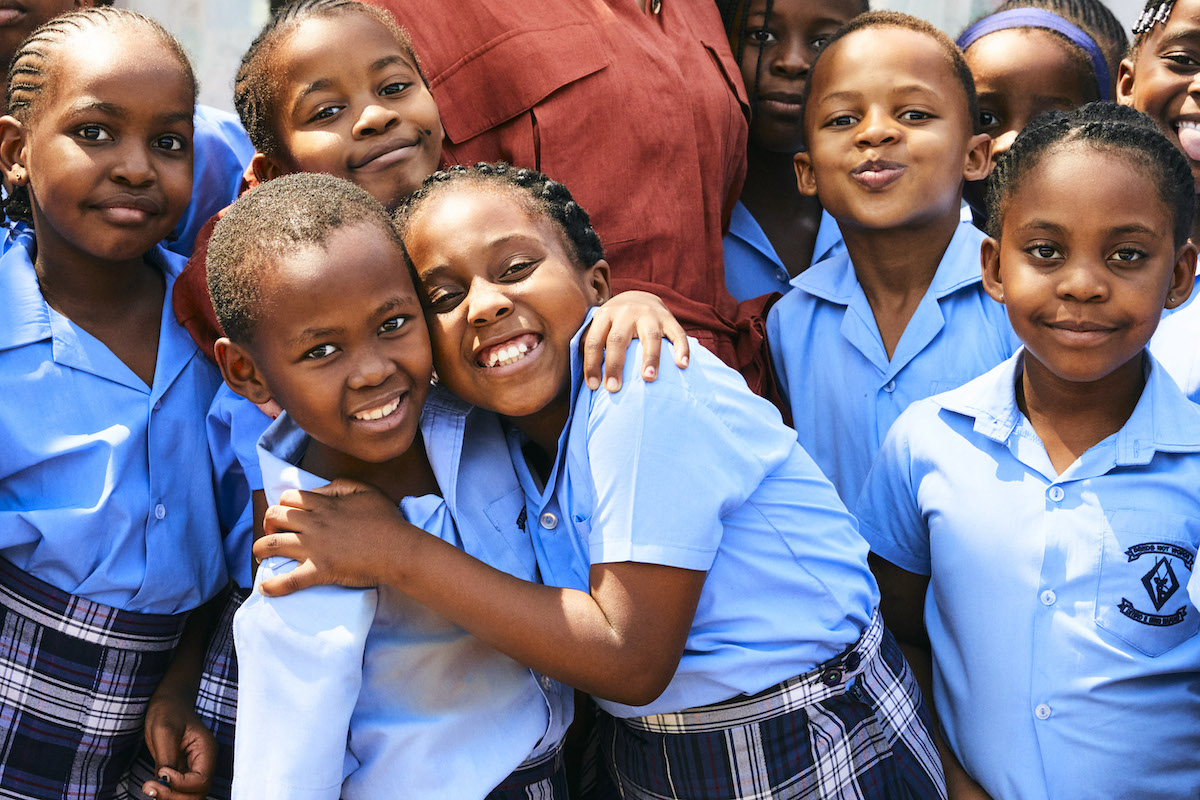
Botswana’s diamond industry has made education a top priority in conjunction with the government. All diamond mining operates under a licensing agreement with the government in which 80 percent of diamond-related revenues are put back into the country’s economy. Debswana, a 50/50 joint venture between De Beers and the government of Botswana, runs four primary schools surrounding the Orapa, Letlhakane and Damtshaa mining communities and mining revenues help fund more than 300 other schools in the country. Tuition for children of mine employees is generously subsidized. The Natural Diamond Council’s Global Ambassador Lily James witnessed the impact first-hand during a recent trip to Botswana, which included a stop at the The Livingstone House Primary School.
The Livingstone House Primary School, an elementary school with a student body of 600, ages 6 to 13, is one of the four schools run by Debswana in Orapa. Emily Mompe was a former student at the school and now teaches third grade there. “When I think of Orapa in the 80s versus what we have currently, it’s one of those things that you need to live here to believe it,” she said of the development in the area. “We used to have bumpy roads and now, of course, paved roads. We used to have a clinic the size of a three-bedroom house and now it is a hospital. We had no secondary school in my day, now we have two junior secondary schools and a senior secondary school.”
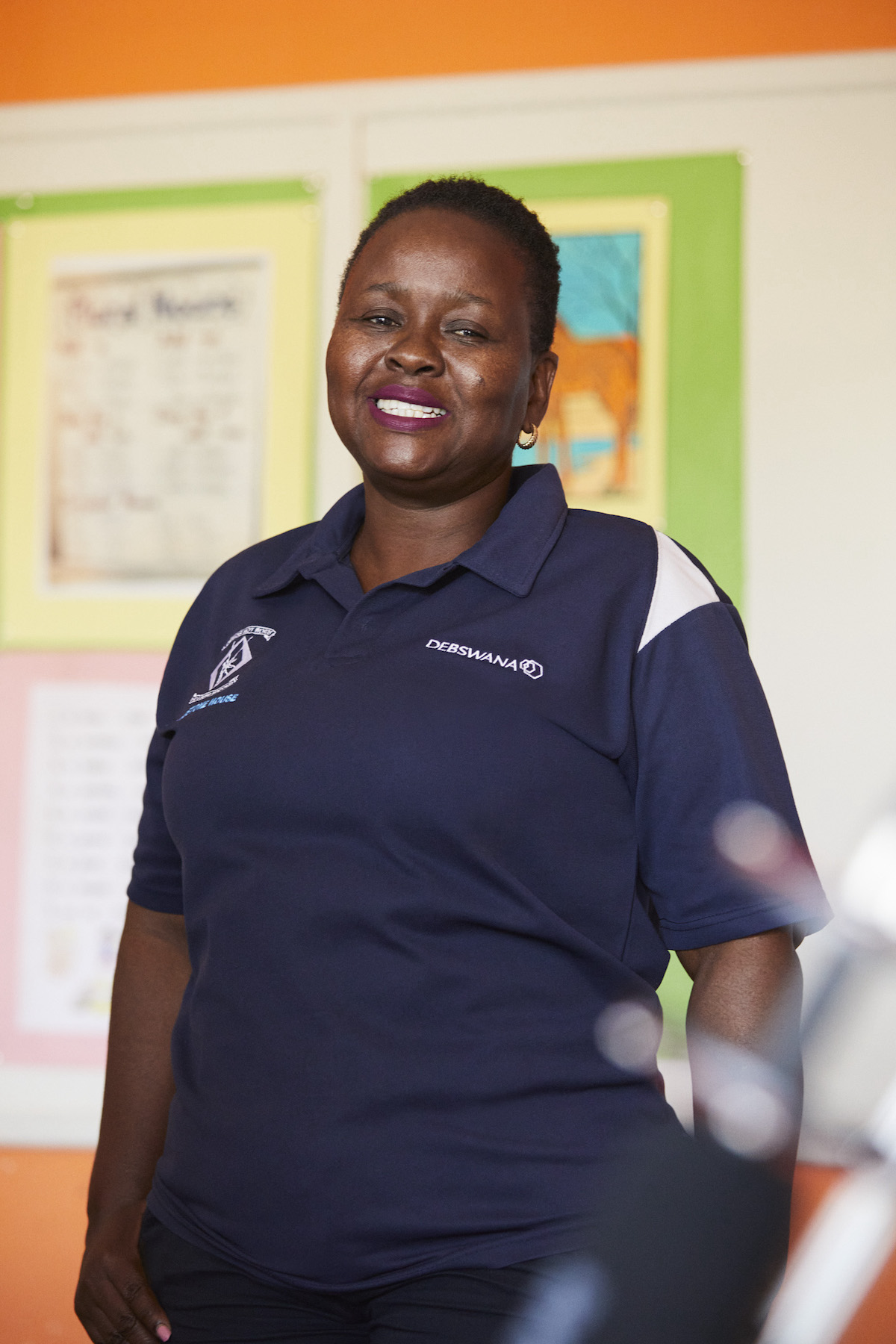
The Orapa Schools’ motto is “Deeds not words,” meaning the curriculum is dedicated not just to dictating concepts in the classroom but putting them into practice and creating a living culture. “We are not just concerned with academics,” said Mompe. “We want to provide for a whole child.”
The schools base their curriculum on that of the Botswana Ministry of Education and Skills Development. There are six required subjects — English, Setswana, mathematics, science, social studies, religious and moral education, and agriculture — on which all pupils are tested in their final year, Standard 7, via the Primary School Leaving Examinations. But beyond the core curriculum, the Debswana schools encourage students to explore music, computers/IT, physical education, design and technology, and remedial and library studies. Each school has a special education unit to support students with learning differences.
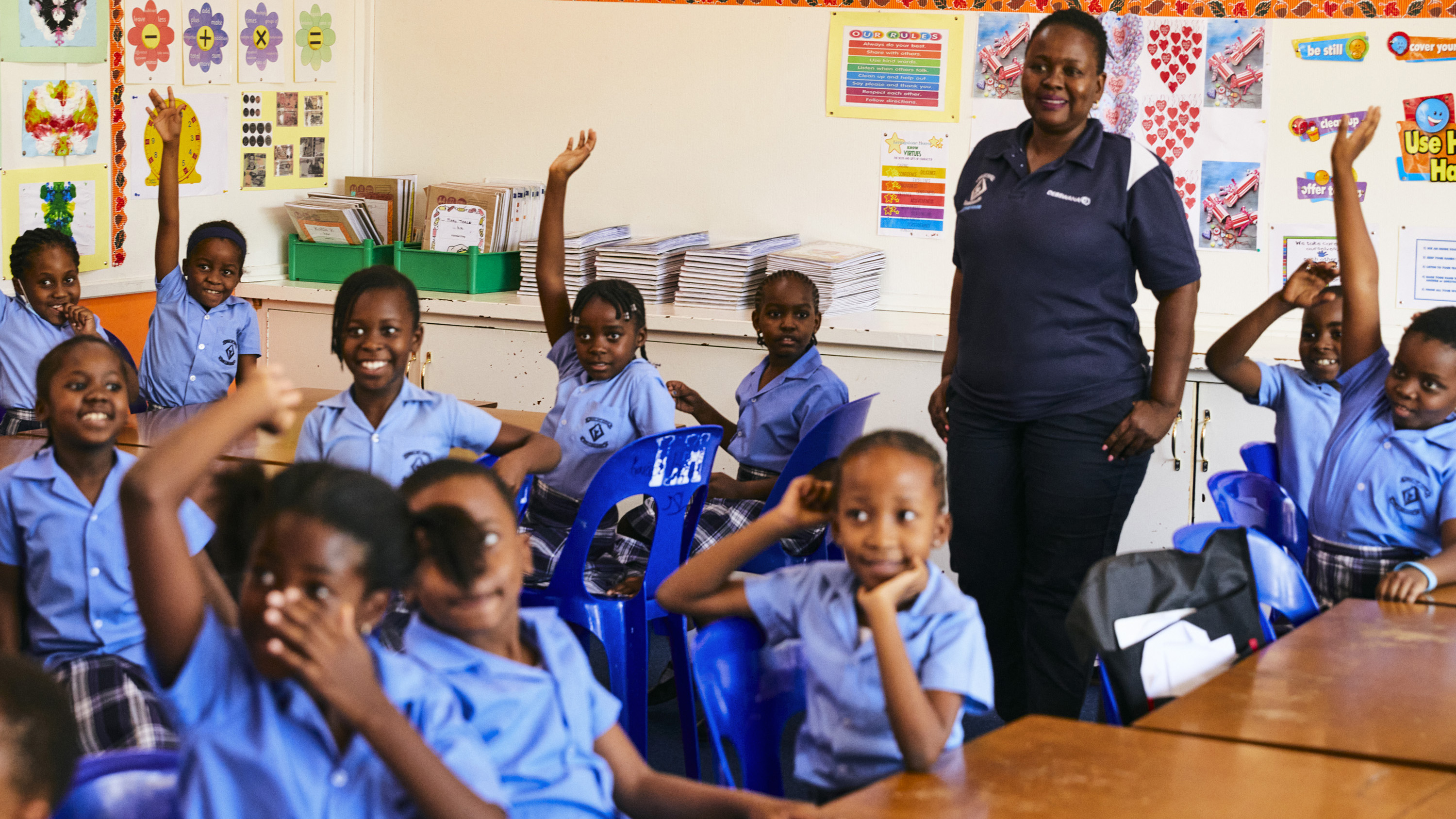
After school programs are essential too. The Livingston School has a swimming pool that’s heated so the kids can take swimming lessons year-round. The athletic and arts programs are offered to all students and include tennis, cricket, soccer, netball, cross-country and chess. Music plays a very important role at the schools, and emphasis is placed on learning to play various instruments, including melodicas, recorders, marimbas and steel drums. Central to Debswana’s schools’ mission is sustaining a level of education that’s on par with international excellence. It celebrates and explores Botswana’s local heritage but also exposes each child to international cultural norms.
The role the diamond industry plays in Botswana’s education cannot be underestimated. To that point, Debswana’s school logos are designed with a diamond shape at its core, symbolizing the importance of the natural resource to the economy, and also the standard of excellence to which the school strives.
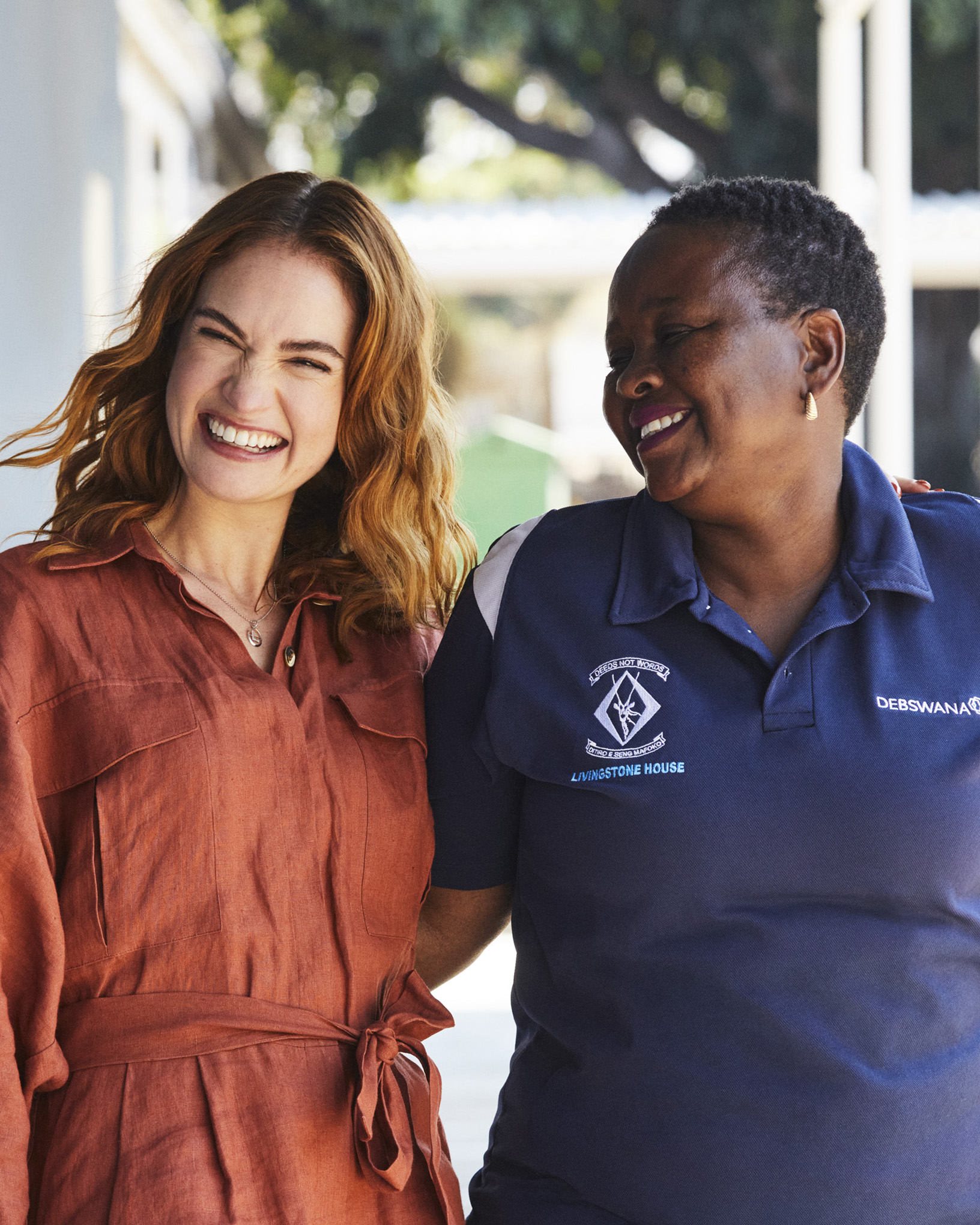
“Our culture in Botswana is about ubuntu —we share everything,” said Pat Dambe, Vice President of Market Outreach at De Beers Group, who grew up in Botswana and completed much of her university education on scholarships provided by De Beers. “Without diamonds, we wouldn’t have a country. There’s the brilliance of a diamond, and there’s the livelihood we’ve created from it. I have a good education. The average person you’ve spoken to has a good education, has a middle-class existence, thinks about their children going to school, and has a house over their head. That’s very much a result of diamonds and the community environment they’ve created.”



